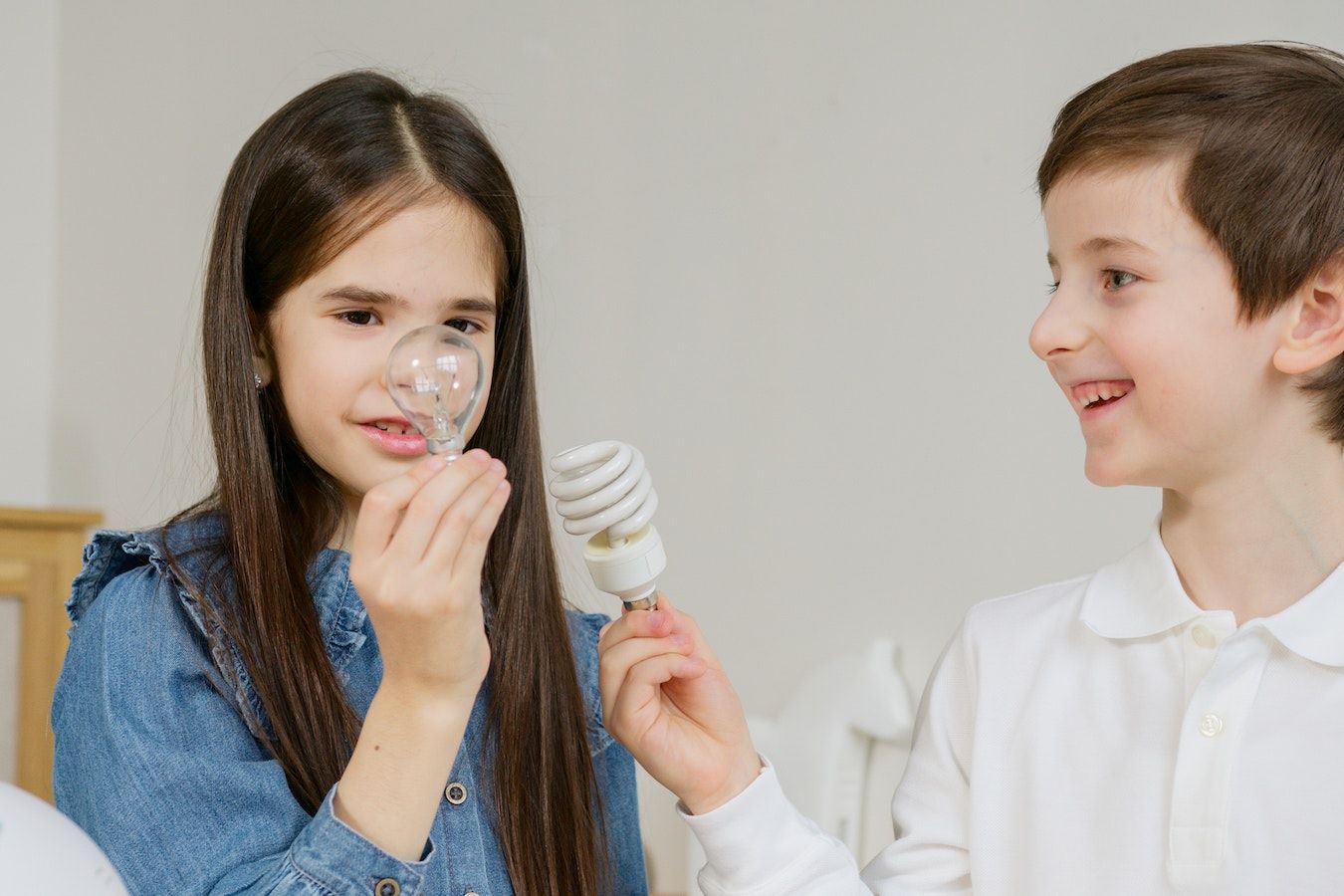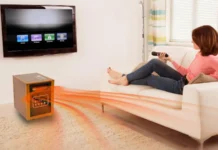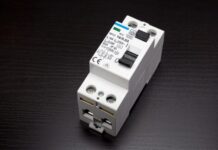Have you been wondering how to save electricity in your homes or offices? Then, this PowerVersity guide will give you solutions on how to do that.
In this article, Victor will define energy conservation and outline how it differs from energy efficiency.
Moreso, I will highlight ways to save yourself a huge sum of energy consumption.
Home energy-saving tips abound, ranging from simple daily routines to significant investments that not only benefit the environment but also save your energy costs.
What are some easy strategies for cutting residential energy use, then?
This article is based on the perspectives of some eco-experts who offer incredible advice and viewpoints on how to live sustainably by consuming less and switching to renewable energy sources.
The use of less electricity has the dual benefits of reducing global warming and making significant long-term financial savings.
Any electrical item that is used in your home or workplace can be altered to be more energy-efficient.
The amount of electricity you use can be decreased by insulating your home and altering your daily routine.
For more information on how to save Electricity, keep reading.
What Is Energy Conservation?
We are trained to turn off appliances or devices when not in use since we are very young. Normally, when we leave the house or when they are not in use, we turn off the fan, light, air conditioner, and refrigerator.
In addition to lowering our energy costs, we use these strategies to save money. Conserving energy can be aided by appropriate behavior and habits.
Choosing to use less energy is known as energy conservation.
Energy-saving measures include turning off the light when leaving a room, disconnecting appliances when not in use, and choosing to walk rather than drive.
Gaining more control over their energy cost and lowering the pressure on the planet’s natural resources are the two main reasons individuals conserve energy.
How To Save Electricity: Energy Efficiency Versus Energy Conservation
Although the terms “energy efficiency” and “energy conservation” are often used interchangeably, they have different definitions in the energy world.
Energy efficiency involves using technology that uses less energy to perform the same function.
Such as energy-saving lightbulbs, large household appliances, smart thermostats, and smart home hubs like Constellation Connect.
Let’s learn more about the specific energy-saving measures in this post.
Before we get started on strategies to save electricity in our homes and offices, let’s take a moment to understand the law of energy conservation.
How To Save Electricity: Law Of Energy Conservation
According to the rule of conservation of energy, “Energy cannot be created or destroyed, but only transformed from one form to another.”
The total energy of an isolated system stays constant throughout time in accordance with the rule of conservation of energy.
The law of conservation of energy applies to all kinds of energy. Before and after the transition, the total energy is unchanged.
Recall that since 1991, December 14 has served as National Energy Conservation Day. This shows that energy conservation is very relevant to the nations
Now, is the time to explain the numerous methods by which energy can be saved.
How To Save Electricity: The Real Ways To Save Energy And Electricity At Home
1. Always Switch Off The Lights While Leaving A Room
Making sure to always switch off the lights while leaving a room is a fundamental habit to cultivate. Create a reminder to do so until you develop a subconscious habit of doing so.
By consistently carrying out something as easy as this, you may reduce your monthly power expenditures by a significant amount.
2. Modify Your Regular Behaviors.
You don’t absolutely need to go out and buy energy-efficient goods if you want to lower your home’s energy use and maximize your energy savings.
Simply shutting off lights or appliances when not in use can help you conserve energy.
By carrying out household chores by hand, such as washing dishes by hand or hanging up your clothing to dry instead of using a dryer, you may also use energy-intensive equipment less.
3. Change The Light Bulbs.
Upgrade old-fashioned incandescent bulbs with new LED ones, and only leave the lights on that you require.
Compared to incandescent and halogen lights, LED bulbs are more effective, last longer, and cost cheaper per bulb annually.
When buying bulbs, check the energy label and choose A over G (the least efficient) if possible.
The simplest and most straightforward technique to conserve electricity is to switch off the lights when you leave a room.
Traditional incandescent light bulbs use excessive amounts of electricity and require more frequent replacement than their energy-efficient counterparts.
Compact fluorescent lights (CFLs), halogen incandescent bulbs, and light-emitting diode bulbs (LEDs) all consume between 25 and 80 percent less power and have a lifespan of three to twenty-five times longer than conventional bulbs.
4. Make Use Of Smart Power Strips
Household devices continue to drain power from plugs even while not in use. Using energy-saving smart power strips can help you reduce phantom-load expenses, which might lead to financial and energy savings.
The electricity utilized by electronics while they are switched off or in standby mode is referred to as “phantom energy,” also known as “standby energy” or “vampire energy.”
Energy wasted during standby is significant. The typical American home spends up to $100 a year on it, according to the U.S. Department of Energy (DOE).
Moreso, it amounts to 5% to 10% of domestic energy usage.
By turning off the power to devices when they are not in use, smart power strips, sometimes referred to as sophisticated power strips, solve the issue of phantom loads.
Smart power strips can be programmed to turn off at predetermined times, after a specified amount of idleness, through remote switches, or depending on the state of a “master” device.
These power strips turn off items that have been placed in standby mode.
5. Switching To Efficient Appliances
You should consider the initial purchase price and the yearly running cost when making an appliance purchase.
Although the upfront cost of purchasing energy-efficient appliances may be greater, you will often save money over time on your monthly electricity costs as well as energy.
The two appliances that use the most energy in a home are the dryer and the refrigerator.
By switching to more energy-efficient versions, you may decrease your usage of power in half and lower your electricity costs.
Another strategy to cut back on power use is to install heat pumps. Generally speaking, if you repair and replace your appliances every few years, they will use less power.
6. Reduce Your Water Heating Expenses
Your overall energy use is significantly impacted by the heating of your water. Use less hot water, lower your water heater’s thermostat, or insulate your water heater.
Besides, the first six feet of your hot and cold water pipes are the other two ways to lower your water heating costs outside investing in an energy-efficient water heater.
It’s not essential to take cold showers, but you can save a lot of power and money by being aware of how much hot water you use and how it’s heated.
Consider two things when replacing your old water heater with an efficient one: the fuel it will use and the sort of water heater that best suits your needs.
For instance, tankless water heaters are economical in terms of energy usage.
However, they are also a bad option for households with many people since they are unable to provide hot water for several people at once.
Make sure your water heater is properly insulated to prevent excessive heat loss. Consider purchasing a water heater that doesn’t rely on a pilot light that is always illuminated.
Showers are preferable to baths. Showers consume far less water than baths do. Shower for fewer minutes. The 20-minute shower consumes a lot of power.
7. Less Often, Use The Air Conditioner.
Even while using the air conditioner is occasionally necessary, there is no justification for leaving it on continuously from the start of spring to the conclusion of summer. whenever you can, find different ways to relax.
8. Introduce Solar-Powered Devices
Nowadays, you can get a solar-powered version of practically any home appliance.
Utilizing more solar-powered gadgets and making simple changes can have a big impact while also lowering the maintenance and replacement expenses of such equipment.
Above are some of the ways you can save energy/electricity in your homes and offices. Others include:
- washing with a low heat setting.
- Put the cover on while you cook.
- Use doors with double glazing.
- Keep the thermostat set to a lower setting.
- Be open to natural light.
- Your house needs insulation.
- Air filters should be cleaned or changed.
- Don’t use your oven; instead, use your toaster oven.
How To Save Electricity: FAQ

Keep your electronics off throughout the day. Your computer, monitor, printer, and fax machine should only be turned on when necessary. Set your thermostat at 78 degrees Fahrenheit in the summer and 68 degrees Fahrenheit in the winter. Every degree you raise the temperature will use 6% to 8% more electricity.
Never use bare feet or damp hands to handle anything electrical. Never leave an electrical device somewhere where it may fall into the tub or a sink. Around children, never leave an electrical device alone. All portable electric devices, including hairdryers, hair straighteners, shavers, etc., should be turned off and unplugged.
Make sure your home is properly airtight and insulated. Ensure that the heating system you choose is electricity-free and energy-efficient. Water heaters with electricity – Get a heat pump water heater that has earned the Energy Star label, and take good care of it. less “always on” appliances are better.
Contrary to popular belief, turning your lights on and off doesn’t consume any more energy than leaving them on.
One of the simplest methods to conserve energy is to turn off the lights when you leave a room.
After dinner, just load the dishwasher and don’t run it until later or in the morning. Keep in mind that on weekdays, energy is less expensive before 4 p.m. and after 9 p.m. Weekends and most holidays always have lower energy prices.
My Final Thoughts On How To Save Electricity At Home
Energy conservation aids in: cost savings and lower utility bills, the continuation of fossil fuels, environmental protection, and pollution reduction.
I really hope that my article about how to save electrical energy was useful.
Please use the “Leave a Reply” box at the bottom of this page to let us know whether you found the review useful.
You might be interested in reading more tales similar to this. Check the following instead:
How To Install Solar CCTV Camera




